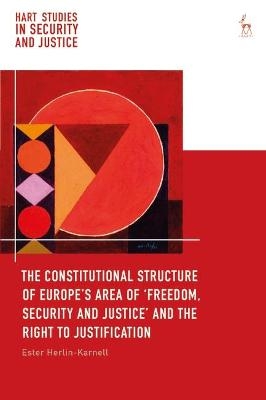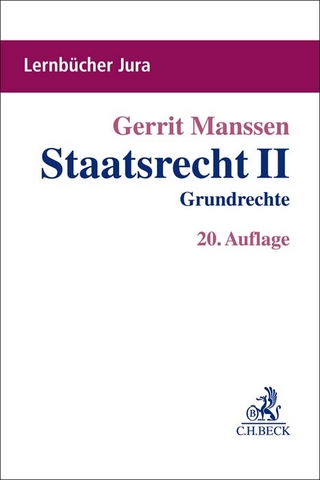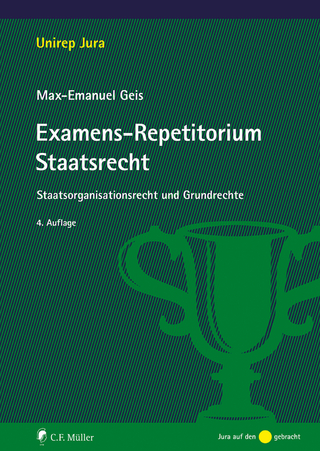
The Constitutional Structure of Europe’s Area of ‘Freedom, Security and Justice’ and the Right to Justification
Hart Publishing (Verlag)
978-1-5099-1249-0 (ISBN)
Ester Herlin-Karnell is Professor in EU Law, University Research Chair of EU Constitutional Law and Justice, and the Director of the VU Centre for European Legal Studies at the Free University of Amsterdam.
PART I
1. Introduction
I. The Idea of the Book
II. The Structure of the Book
III. Why Constitutionalism Matters for Constructing the AFSJ Sphere
IV. Introduction to the Contested Concept of Justice and the EU Security Status Quo
V. Justice, EU Legal Debate and the External Aspect
VI. Conclusion
2. The Concept of Non-domination in the EU Security-related Context
I. Introduction
II. The Concept of ‘Freedom as Non-domination’ as a Constitutional Set-up: Charting the Main Debate
III. Non-domination, Justice and EU Security Regulation
IV. Legitimacy and Justification
V. Judicial Review and Non-domination
VI. Translating the ‘Non-domination’ Question to the Supranational EU Level and its Relevance for EU Security Regulation
VII. Introduction to the Links between Justification and Proportionality in the Context of Non-domination
VIII. Conclusion
PART II
3. The Right to Justification, Justice and the Area of Freedom, Security and Justice
I. Introduction
II. Justice as a Contested Concept
III. Justice and on the Constitutional Structure
IV. The Idea of Justification, Democracy and the Question of Legitimacy
V. The Ideal and Non-ideal Picture of Justice
VI. Constitutional Essentials, Public Reason and Judicial Review
II. Same for States and Citizens? The EU Context
VIII. Conclusion
4. Proportionality and Reasonable Disagreement in the Area of Freedom, Security and Justice
I. Introduction
II. Proportionality in the AFSJ and Beyond
III. Proportionality Discourse: Introductory Remarks to a Grand Debate
IV. An Umbrella Principle of Proportionality in EU Law
V. Proportionality on the EU Legislative Table
VI. The New Contours of Proportionality within the AFSJ: Case Law
VII. Critique and Appraisal of the Principle
VIII. The Turn to Justification: Proportionality as Reasonable Disagreement
IX. Proportionality and Justice as a Force for Good AFSJ Structure?
X. Conclusion: Non-domination Utilised Through Proportionality?
PART III
5. The Right to Justification, Territoriality and Migration, Refugees and Terrorism
I. Introduction
II. The Decent Society and its Borders: Some Key Debates Explored
III. Migration Ethics and the AFSJ Challenge
IV. Anti-terrorism, Security and Prevention
V. Adjudication and Security in Real Time
VI. Agencies and the Accountability Deficit
VII. What Kind of Justification for What Kind of Solidarity?
VIII. Conclusion
6. The Dimensions of Constitutional Justice: The Multi-Speed Scenario
I. Introduction
II. Justice and Fragmentation: Cherry-picking AFSJ Standards
III. Constitutional Justice, Trust and the CJEU
IV. The Court of Justice as a Trustee Court in the AFSJ?
V. National Courts and Fiduciary Obligations: When the EU Standard is not Robust Enough
VI. Conclusion
7. Conclusion
I. Conclusion
II. The Justification of the Book
| Erscheinungsdatum | 30.04.2019 |
|---|---|
| Reihe/Serie | Hart Studies in Security and Justice |
| Verlagsort | Oxford |
| Sprache | englisch |
| Maße | 156 x 234 mm |
| Gewicht | 442 g |
| Themenwelt | Recht / Steuern ► EU / Internationales Recht |
| Recht / Steuern ► Öffentliches Recht ► Verfassungsrecht | |
| ISBN-10 | 1-5099-1249-5 / 1509912495 |
| ISBN-13 | 978-1-5099-1249-0 / 9781509912490 |
| Zustand | Neuware |
| Informationen gemäß Produktsicherheitsverordnung (GPSR) | |
| Haben Sie eine Frage zum Produkt? |
aus dem Bereich


